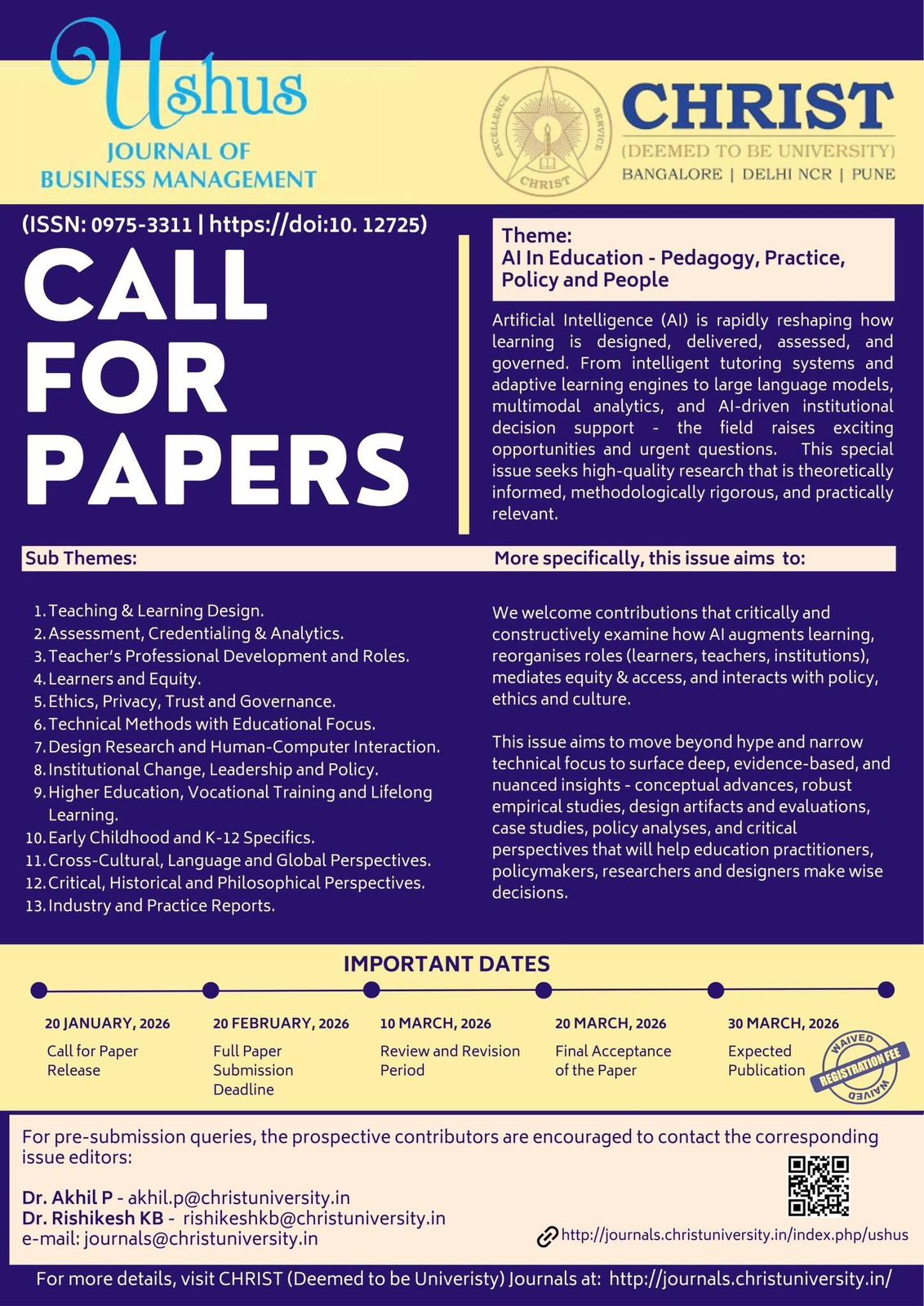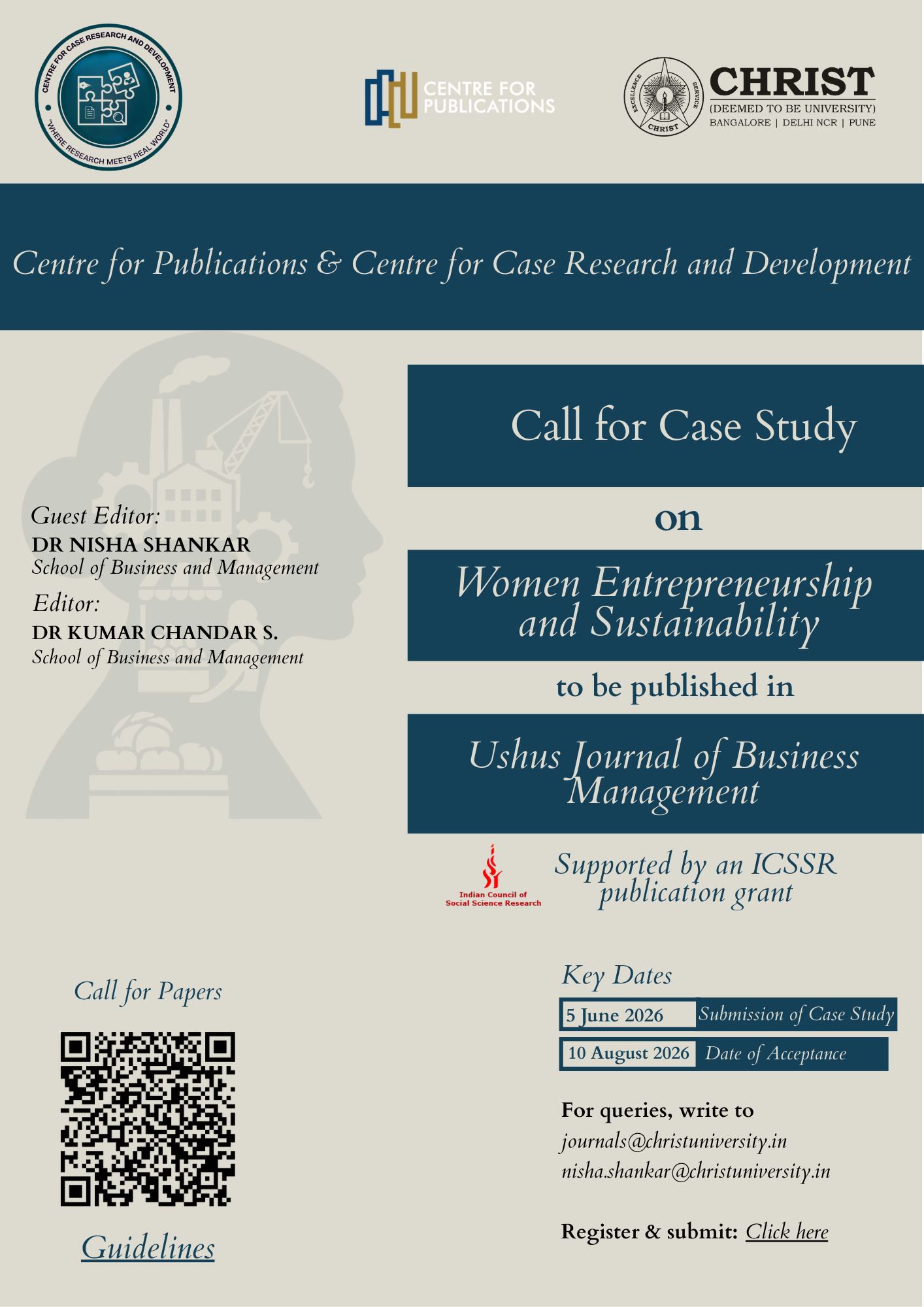Editorial
DOI:
https://doi.org/10.12725/ujbm.27.0Abstract
This issue focuses on Organizational Citizenship Behaviour (OCB) and its influence on performance of employees in various organizational settings. The first three articles reinforce the fact that OCB is critical to organizations and do influence a number of output variables, thus increasing overall organizational effectiveness. The fourth article explores systematically foreign exchange in the Indian IT Sector. OCB over the last four decades has received a lot of attention and has contributed considerably to the literature of Psychology and Management. Individuals who make up organizations exhibit a range of behaviours from just maintaining affiliation to involving in extra role behaviour by going the extra mile for one’s own and the organization’s benefit. These discretionary behaviours not defined nor rewarded by organizations that go beyond job descriptions are termed OCB. These behaviours are positive for organizational sustainability and benefits both employees and managers. Sonam’s article on a mining company found positive relationship between leadership and OCB. Personality of employees and leadership was found to influence OCB. She recommends the use of personality tests in employee selection to increase the likelihood to exhibit OCB which will help improve organizational effectiveness. For leader to be effective there must be an adequate and reasonably well balanced development in areas such as thoroughness, fairness, communication and so on. Aditi, Sanjeela and Jain’s study focus on social expectations, desire for personal growth, values system, professional attitude, teaching methodology and skill’s effect on OCB of teachers in higher education. They found significant relationship between age and professional attitude, teaching methodology & skills, experience and value system, teaching methodology & skills, educational qualification and social expectation, desire for professional growth, value system and professional attitude. They suggest teachers to go beyond the syllabus, better work–life balance, faculty empowerment and a better remuneration as strategies for increased engagement and OCB.



